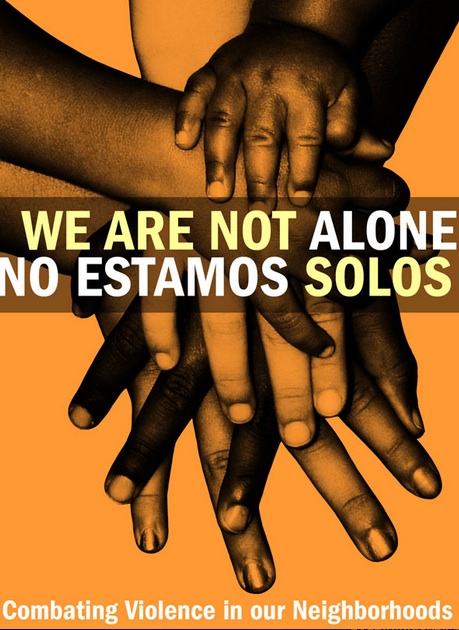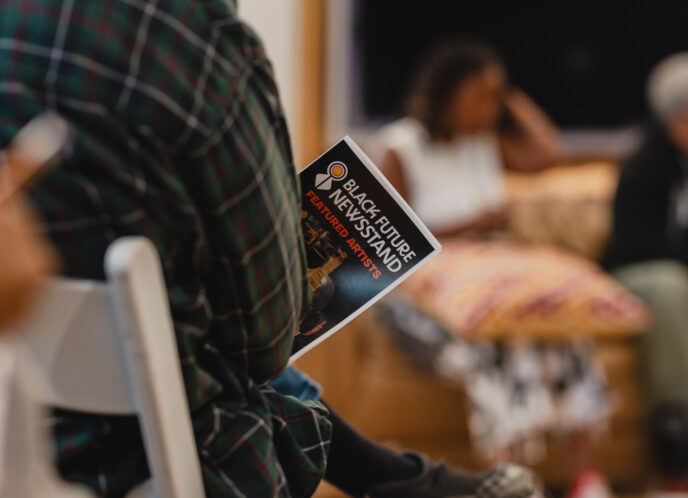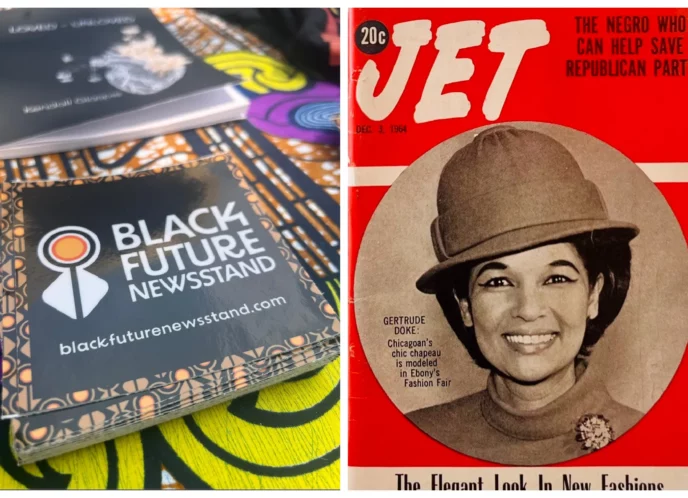This week CMJ staffers are in Maryland for the Media Action Grassroots Network annual anchors meeting. To get a behind the scenes look at all the action check-out the MAG-Net website where we have daily updates and photos.
While our Chicago Anchor, Community Media Workshop (CMW), aren’t represented at the meeting in person – they’re there in spirit (and even sent a shout-out video to the other anchors).
And even better, we got to catch up with CMW’s Senior Trainer Diana Pando. Read on to find out more about the work of the organization, what drives her and to get a good news tip.
DIANA PANDO, COMMUNITY MEDIA WORKSHOP – MAG-NET INTERVIEW
Can you tell me about the mission and vision of Community Media Workshop, and who you serve (in your own words)?
Our organization serves nonprofit organizations working on a variety of issues ranging from immigration to healthcare. Our purpose is to empower these organizations with the communications skills and tools they need to tell their organization’s story to the media. We do this by organizing a variety of communications and social media workshops throughout the year. We also help in sourcing grassroots and community news for journalists. Our goal is to diversify voices in the news and promote news that matters.
What is your role at CMW? Tell me what an average day for you is like. What’s a day in the life of Diana Pando?
 A day in the life of Diana Pando includes a strong cup of coffee and industrial strength multi-tasking. My role as the Senior Trainer at the Workshop includes: Organizing the 2012 Making Media Connections conference, scheduling and coordinating all of our regular communications and social media trainings and assist in organizing ethnic media department events. I’ve also done custom communications trainings for the following organizations: Chicago Department of Cultural Affairs – Creative Arts Expo, Department of Family & Support Services, IL Library Association, Region V Headstart Conference, IL Education Foundation, IL Parks and Recreation Association and Telpochcalli Community Education Project.
A day in the life of Diana Pando includes a strong cup of coffee and industrial strength multi-tasking. My role as the Senior Trainer at the Workshop includes: Organizing the 2012 Making Media Connections conference, scheduling and coordinating all of our regular communications and social media trainings and assist in organizing ethnic media department events. I’ve also done custom communications trainings for the following organizations: Chicago Department of Cultural Affairs – Creative Arts Expo, Department of Family & Support Services, IL Library Association, Region V Headstart Conference, IL Education Foundation, IL Parks and Recreation Association and Telpochcalli Community Education Project.
What does media justice mean for Community Media Workshop? Why did you all decide to help anchor a Chicago Chapter?
We decided to be a Chicago Chapter anchor because we believe in the media justice work that is being done by MAG-Net and its members. It’s a way for us to educate and spread the word about the work that is being done on media justice issues to our networks. Media justice to Community Media Workshop means strengthening this national movement by helping nonprofits tell their story to the media and diversifying the types of stories being covered in mainstream news.
For you personally, what sparked your interest in media justice work?
Media justice work is a must if we want to strengthen our democracy and include marginalized communities into a larger public narrative and conversation. Currently, there are so many community issues and stories not being covered in mainstream media. A recent example, I came across was a news article called, The Faces of the Forgotten: Missing Black Women Across America. This article brought to my attention this disturbing issue happening to African-American women but equally disturbing is that I had to read about it in the Daily Mail, a British online news site.
if we want to strengthen our democracy and include marginalized communities into a larger public narrative and conversation. Currently, there are so many community issues and stories not being covered in mainstream media. A recent example, I came across was a news article called, The Faces of the Forgotten: Missing Black Women Across America. This article brought to my attention this disturbing issue happening to African-American women but equally disturbing is that I had to read about it in the Daily Mail, a British online news site.
This is just one example of many that exist and trying to figure out how to fill those gaps is exciting. At Community Media Workshop we try to fill these gaps in media through different program initiatives. In the last six-months, we’ve co-launched a Global Chicago Women’s Blogger Initiative, organized a media panel with Black media outlets to help them connect with nonprofits serving the African-American community, in February we launched the Latino Op-Ed initiative to encourage nonprofit organizations working on issues impacting the Latino community to write op-eds that can be used by local media outlets.
Outside of Community Media Workshop, I’m also working on Proyecto Latina’s Reporteras Series. Its purpose is to empower Latina writers to cover issues in Primera Voz and focus on issues impacting the Latina community. What makes this project unique is that it is completely Latina led and we are creating a virtual safe space for Latinas to have conversations about issues impacting them online.
What most excites you about your role in MAG-Net?
What excites me most about our role in MAG-Net is being able to support the work the organization and its members are doing to spotlight media policy issues. It allows us to inform our nonprofit networks in Chicago about these issues as well as what they can do to take action and be part of a larger media justice movement.
What are some of the media policy issues that impact Community Media Workshop and your constituents the most?
In 2010 we published our New News Report and what we discovered through our research was that between 1986 and 2008 the appearance of selected key issue words and phrases like “public housing”, “uninsured” and “school reform”, to name a few, have declined dramatically in the news. The report also found that news media is unlikely to cover your issue. Our constituents are working on a variety of issues that impact communities, and if they can’t get their stories in the media these issues and communities become invisible resulting in a lack of diversity and access to information. You can read the New News Report here.
What’s your top news tip for the media justice movement?
My top news tip for the media justice movement is to be proactive in your communications. For example, call reporters and find out what kinds of stories they are looking for and be a resource for them. Also, take the time to follow reporters on Twitter and listen to the conversations going on about media justice issues. Engaging reporters online and offline is key to building a strong relationship with reporters.
To get more media tips go to www.communitymediaworkshop.org and read more about Diana Pando here.


